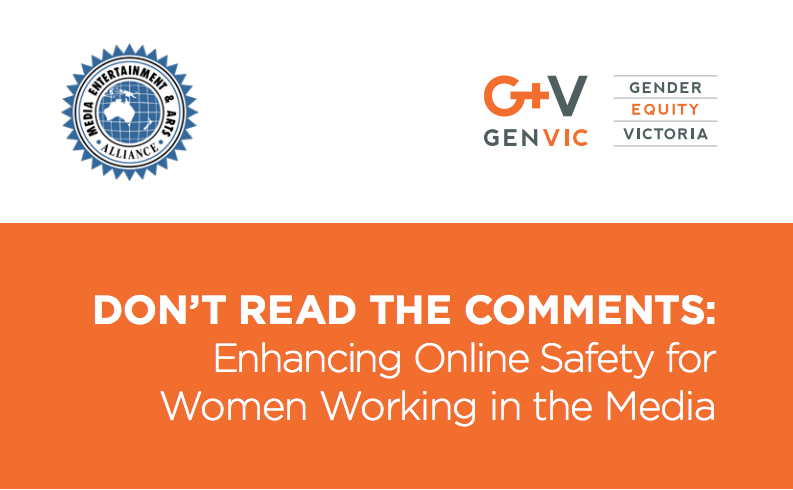Online abuse against women journalists is a workplace health and safety issue, says new report
Media companies need to treat online gender-based abuse against women journalists as a workplace health and safety issue, a new report has recommended.
‘Don’t Read the Comments: Enhancing Online Safety for Women Working in the Media‘ was launched last night by the industry’s union, the Media, Entertainment and Arts Alliance (MEAA), and Gender Equity Victoria. Journalists including ABC Life editor Bhakthi Puvanenthiran and author of ‘Troll Hunting’ Ginger Gorman spoke at the launch event.


